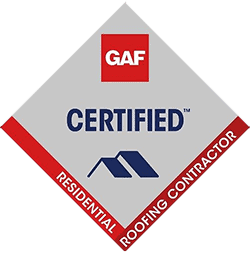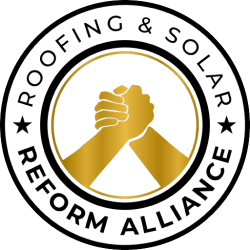Commercial Roofing Systems Compared – Which Is Right for You?
Selecting the right commercial roofing system is critical for the longevity and efficiency of your building.
Whether you are in Beaumont, Lumberton, or Port Arthur Texas, understanding the unique demands of these locations will help make an informed decision on commercial roofing that will protect your investment in the building.
This article explores the different types of commercial roofing systems and how to choose the right roofing system for your needs
Importance of Choosing the Right Commercial Roofing System
Business owners must first understand the unique roofing needs dictated by their geographical location.
Beaumont, Lumberton, and Port Arthur experience a range of weather conditions, including high humidity, frequent storms, and occasional hurricanes that can pose significant challenges to roofing systems.
These factors can influence the durability and maintenance requirements of different roofing materials.
Common roofing issues in these areas include leaking, ponding water, roof blow-offs, and membrane shrinkage.
Addressing these issues with an appropriate roofing system is essential for long-term business sustainability.
Comparison of Commercial Roofing Systems
Built-Up (BUR) and Modified Bitumen Roofing
Built-up roofing involves multiple layers of bitumen and fabric, providing a sturdy and reliable roofing option.
Modified bitumen roofing is a flexible, durable, and waterproof material made from asphalt, polymerized rubber or plastic, and fiberglass or polyester.
Both are commercial roofing systems particularly suited for buildings with flat roofs.
Their strong makeup makes them well-suited to the elements.
Metal Roofing
Metal roofs are known for their durability and cost-effectiveness, making them an ideal choice for the Texas weather.
They offer excellent protection against severe weather and are energy efficient, reflecting sunlight to keep buildings cool.
EPDM (Ethylene Propylene Diene Monomer) Roofing
EPDM is a low-maintenance, cost-effective commercial roofing solution commonly used in commercial buildings.
It is well-suited for varying climates due to its resistance to temperature fluctuations and UV rays.
TPO (Thermoplastic Olefin) Roofing
TPO roofing is favored for its energy efficiency and heat-reflective properties.
It is lightweight and incredibly durable, making it a popular choice in warm climates like Texas.
PVC Roofing
PVC roofing offers excellent durability and resistance against chemicals and punctures.
It is an excellent choice for structures exposed to harsh conditions, although it can be more expensive than other options.
Choosing the Right Contractor for Your Commercial Roofing Needs
Selecting the right roofing contractor is as essential as choosing the roofing material itself.
Top considerations include the contractor’s experience, reputation, and knowledge of the latest roofing technologies.
Beaumont, Lumberton, and Port Arthur have several respected commercial roofing companies known for their quality workmanship and professionalism.
Key Considerations When Selecting a Roofing System
When deciding on a commercial roofing system, consider the cost, available warranties, and required maintenance.
A detailed cost analysis will help balance your budget with your needs.
Warranty and maintenance plans offered by contractors can provide peace of mind and protect your investment.
Conclusion
In conclusion, selecting the right commercial roofing system involves assessing both functional and aesthetic aspects.
Understanding the local climate and building requirements will help commercial building owners in Beaumont, Lumberton, and Port Arthur decide on the best roofing solution.
Key Takeaways
FAQs
- Choosing the correct commercial roofing system is vital for building efficiency and longevity.
- Metal, BUR, EPDM, TPO, and PVC each have distinct advantages and suit different building needs.
- Selecting a reliable contractor in Beaumont, Lumberton, and Port Arthur ensures quality installation and maintenance.
- What factors should I consider when choosing a commercial roofing system?
Consider climate, budget, building use, durability, and maintenance requirements. - Why is metal roofing popular in Texas?
Metal roofing is durable, reflects heat, and withstands harsh weather, making it ideal for Texas. - How does TPO roofing save energy?
TPO roofing reflects sunlight, reducing cooling costs and energy consumption. - Is EPDM roofing suitable for all climates?
EPDM is versatile and performs well in various climates due to its elasticity. - What are the benefits of selecting PVC roofing?
PVC roofing is highly durable and resists chemicals, making it ideal for industrial environments. - How can I make sure that I choose a respected roofing contractor?
Research their experience, read reviews, and check for certifications and insurance. - What is Built-Up Roofing and where is it best applied?
BUR is a multi-layered system best for flat roofs due to its strength and insulating properties. - How do I maintain my commercial roofing system?
Regular inspections, timely repairs, and following manufacturer guidelines help maintain your roof. - Do roofing systems come with warranties?
Yes, most systems have warranties; details vary by material and contractor. - Can I install a new roofing system over an old one?
It depends on building code regulations and current roof conditions. Consult with a contractor for advice.
Tags
Subscribe to High & Tight Roofing's Blog



Comments